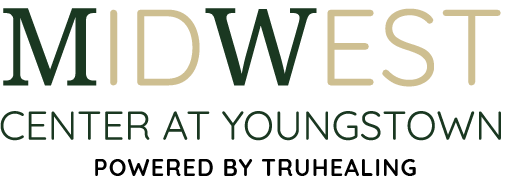With the high rate of opiate abuse in Ohio, more people must become aware of the signs of opiate overdose. When addressed quickly and appropriately, you can save someone’s life in the event of an overdose. Of course, once someone has experienced an overdose, their next step should be enrolling in an opiate addiction treatment in Youngstown, OH. A trip to the emergency room will not be enough to prevent future overdoses that could be potentially fatal.
At Midwest Center at Youngstown, we offer a full continuum of care to help you overcome opiate addiction. Whether you need the highest level of structure and support from residential treatment or looking for an outpatient program to help you sustain your recovery, we have a program to suit your needs. Reach out to us at 844.544.0502 to learn more about our opiate addiction treatment in Ohio.
What Are Opiates?
Opiate abuse is relatively common in Ohio since many people use these prescription painkillers after an injury or surgery. Without pain relief from these drugs, a person may find it difficult to function if they are experiencing moderate to severe pain. Some of the most commonly prescribed opiates are:
- Codeine
- Fentanyl
- Hydrocodone
- Oxycodone
- Tramadol
Opiates are generally intended for short-term use. You are expected to discontinue using them after the pain has subsided. Unfortunately, opiates are highly addictive, and many people unintentionally misuse their prescriptions.
Symptoms of Opiate Overdose
Of course, it is recommended that you encourage a loved one to seek help for opiate addiction. However, not everyone is open to opiate addiction treatment, and they may continue using it. The next best thing you can do is familiarize yourself with opiate overdose symptoms so you can act quickly to prevent a fatality. Be aware of the following signs of opiate overdose:
- Choking or vomiting
- Incoherence or disorientation
- Loss of consciousness
- Pale skin with a grayish or dark blue tone
- Pinpoint pupils
- Shallow breathing
- Slow heartbeat
Opiates are depressants and slow down the central nervous system, including slowing the heart and breathing. When a person shows signs of opiate overdose, they are at risk of stopping their breathing completely, endangering their brain with the lack of oxygen.
What to Do When You See Opiate Overdose Symptoms
Now that you know how to recognize the signs of opiate overdose, you need to know what to do if you witness an overdose. Quick action on your part can make the difference in the person’s recovery from opiate overdose. If you see someone who appears to be showing opiate overdose symptoms, follow these steps:
- If you know the person uses opiates, you may assume they are just drowsy or sleeping because they are under the influence. To be on the safe side, you should try to get a response from them to ensure they are conscious and not overdosing.
- Stay with the person to ensure their safety.
- Call 911 right away and tell them you suspect the person has overdosed on opiates.
- Naloxone is a life-saving drug that can reverse an opiate overdose. Administer naloxone if it is available. If you do not know how to use it, ask the 911 representative to walk you through it.
If you have someone in your life who misuses opiates, you can request a naloxone prescription to keep on hand, even if you do not use opiates. Speak with your doctor about your concerns for your loved one and ask them to provide you with a prescription and teach you how to use it.
Seek Treatment at Midwest Center at Youngstown
An opiate overdose can be scary, but it does not have to end in tragedy. Knowing the signs of opiate overdose and what to do if you suspect someone may be overdosing can save their life and give them another chance to start over. If someone you love needs help with opiate addiction, call Midwest Center at Youngstown at 844.544.0502.

